
|
|
28 February, 2002
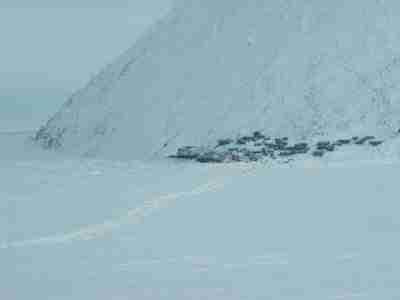
This is an aerial view of the village of Ingaliq, Little Diomede, taken as we landed.
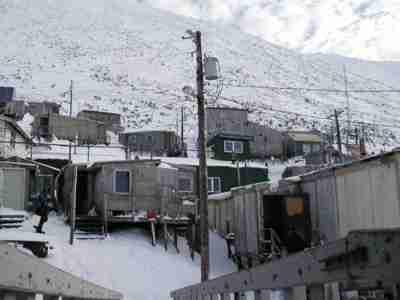
The village sits on the western slope of the island. There are approximately 140-160 people living here and about 40 households.
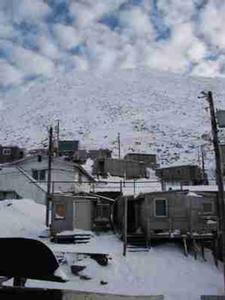
Although the island of Little Diomede is surrounded by water, it is actually in an arctic desert and the village regularly faces severe water shortages, conservation is very important. A water tower holds the only fresh water source on the island. Fresh water is gathered from runoff and stored for use throughout the year. In fact, running water is not available in most buildings except in the school (where I am staying). So, hauling water is a part of daily activities.
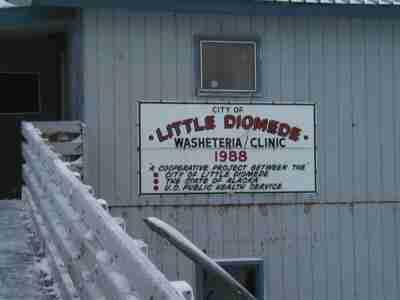
There is a place to use laundry machines at the Washeteria. And upstairs in the same building, there is a clinic where local Health Aides help meet the basic medical needs of people from the community. However, there are no doctors, and no hospital facilities on the island. In the case of severe medical emergencies, people must be airlifted off the island.
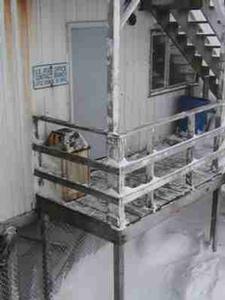
In the winter when the sea has frozen and the ice is thick enough, a landing strip can be maintained. Weather permitting, airplanes transport people and supplies as well as bringing the mail. At other times, mail is delivered via helicopter (also weather permitting).
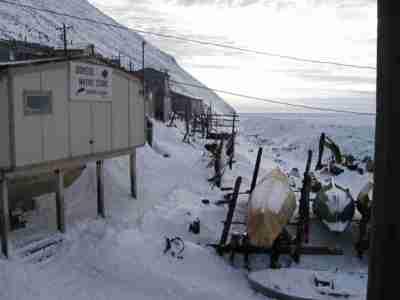
This is a view looking south along the island from outside the school. The Native Store, skin boats and drying racks all play an important role in this subsistence community. People here depend heavily on the land and sea to feed and support their families and fulfill most of their food needs. Meeting these subsistence needs demands great skill and hard work. In addition, gasoline, other supplies and canned goods can be purchased at the Native Store.
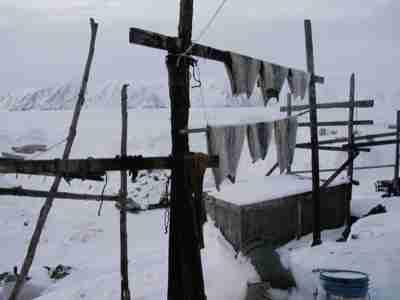
Traditionally, men and women have each contributed to the subsistence needs in different but equally important ways. Birds, eggs, greens, crabs, some fish, and meat from marine mammals are staples of a traditional/native diet. Today, in addition to relying on the land and sea, many people hold wage paying jobs and contribute their wages to maintaining and meeting food needs.
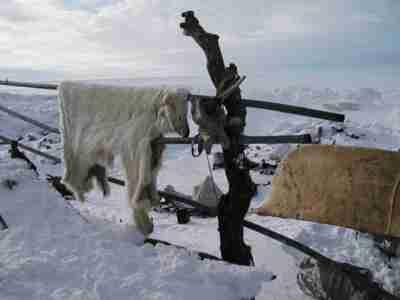
View of a drying rack in use. Animals play an important role in the local diet, as they do for many people living in other varied climates and environments, but unlike most city dwellers, people who live on Diomede do not have the luxury of huge grocery stores and fast food chains to supply their food needs. Instead, people rely on the food that they can fish, hunt and/or forage.
Contact the TEA in the field at
.
If you cannot connect through your browser, copy the
TEA's e-mail address in the "To:" line of
your favorite e-mail package.
|
